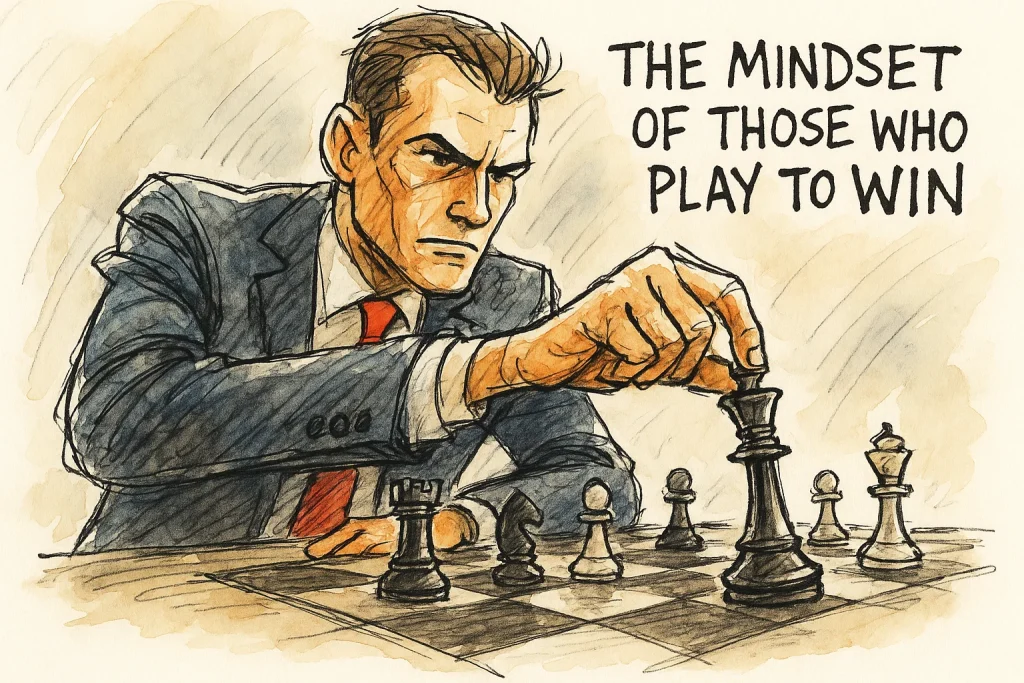
In the series Suits, Harvey Specter delivers a line that has become a mantra in business and leadership circles:
“I don’t play to lose. I play to win. And if I can’t win, I don’t play.”
Many people see arrogance in this attitude. In fact, it reveals strategic clarity. Winning is not about ego – it’s the result of a clear intention, surgical focus, and a well-defined purpose. To apply this philosophy in real life, we need to break down three myths.
- “Participating is winning.” – Not always. Participating in every competition just to show you’re involved dilutes your energy. Big players choose where to invest their time and reputation because they understand that resources (attention, capital, mental health) are finite. If you seek to be the main character in every project, you’ll have no traction in any.
- “Motivation comes before action.” – Those who play to win don’t wait for motivation to knock on the door. Discipline precedes motivation. A clear purpose creates routines that sustain execution, even on gray days. This is where the famous phrase “how you do anything is how you do everything” comes from.
- “Every opportunity is irresistible.” – An opportunity without alignment is distraction in disguise. The winner’s mindset asks three decisive questions:
- Does this bring me closer to my long-term vision?
- Do I have real resources and a competitive advantage here?
- What’s the cost of saying “yes” (time, money, energy)?
How to adopt this mindset in practice?
- Define the arena: where your expertise, passion, and potential intersect.
- Create decision criteria: clear filters prevent you from engaging in others’ battles.
- Align your team and partners: everyone needs to understand which games are worth the effort.
- Measure victories and learnings: constant feedback adjusts the course and strengthens trust.
Playing to win is not about winning all the time – it’s about refusing to compete on grounds that weaken your vision. It’s acting with clarity, saying “no” with elegance, and saying “yes” with total commitment. And, above all, it’s remembering that true arrogance isn’t about striving for victory – it’s about wasting talent and time on games that should never have been played.
That’s it.





